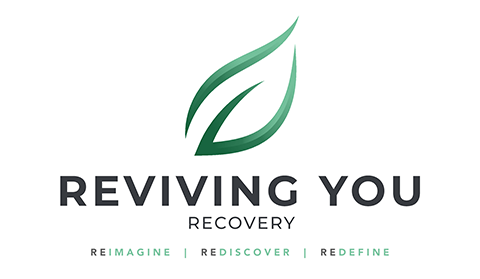Learning to Cope With Stress Improves Addiction Recovery

Stress is part of everyday life. For many individuals with addiction, coping with stress is a challenge. Therefore, part of addiction recovery is to learn how to cope with stress healthily. This helps clients not only to prevent future challenges with substance abuse but also to improve their healing process.
Treatment at Reviving You Recovery incorporates stress management techniques into addiction treatment, helping clients become aware of how stress impacts their body and their lives, including how it can help them to recover from addiction long-term.
Stress and Addiction
While stress is a part of daily life, it is also a significant factor in the development of addiction and vulnerability to being unable to recover from addiction. The connection between stress and addiction is complex; poor stress management cause be a cause of addiction, while addiction increases stress.
Poor Stress Management and Addiction
Stress is a state of mental tension or worry caused by a difficult situation. Stressful situations will vary depending on what challenges a person. However, stress can be caused by work deadlines, interpersonal conflicts, or a busy daily routine. While stress is part of life, when it is not managed well, it can cause many issues in a person’s life. Managing stress keeps stress from becoming chronic. Acute stress, or non-chronic stress, is a stressor that causes strain, and then an individual recovers from it while chronic stress is ongoing.
When an individual does not manage the stress in their life, it can be overwhelming. Unmanaged stress builds over time, causing a person to feel more and more strain. With this high level of strain, individuals often look for a quick fix or a way to stop feeling the tension of stress. Drugs or alcohol are often methods of relieving stress temporarily.
As a person uses drugs or alcohol more often to feel momentarily less stressed, they build a behavioral habit of how they manage stress. This pattern develops and solidifies as they feel the immediate relief of tension with drug or alcohol use, causing patterns that contribute to addiction. In addition, the continued use of drugs or alcohol causes changes in the brain. These changes lead to physical dependency on drugs or alcohol. This means that individuals who use drugs or alcohol to manage stress develop both behaviors related to addiction and physical changes.
Get Your Questions Answered Now
Addiction and Physical Stress
While stress is a mental state of tension, a person’s body can also be stressed. Physical can be both good and bad. An example of good physical stress is exercise. Exercise helps the body to heal and feel good over time. However, too much stress on the body is negative for a person’s health and well-being.
Drug and alcohol use negatively stresses the body. While every substance uniquely impacts the body, addiction is associated with a variety of health issues. These physical issues vary for each person. However, they include cardiovascular issues, cancer, lung disease, and stroke. In addition, addiction is a contributing factor in many mental health issues.
The overarching effect of addiction on the mind and body is stress. Over time, stress causes issues with a person’s health and well-being. However, it can also be a part of a cycle of addictive behaviors. While stress can be one of the causes of addiction, it can also keep a person in the cycle of using drugs or alcohol.

How Clients Learn to Cope with Stress
Due to the connection between stress and addiction, clients must learn to cope with stress healthily. Treatment at Reviving You Recovery incorporates many methods of teaching this skill.
Holistic treatments such as mindfulness practices and breathwork provide clients with the skills to manage stress both in treatment and after. However, many types of psychotherapy are also offered. In psychotherapy, clients learn to adjust their behaviors. They build new patterns that can help them to manage stress in their lives after treatment.
Finally, Reviving You Recovery offers a chance for clients to begin to heal physically. Through detox and nutritional education, clients’ bodies begin to heal. As they do so, clients feel better physically. However, this also gives individuals more capacity to cope with stress in the future.
When Clients Learn to Cope with Stress
There are many skills taught in addiction treatment. Learning to cope with stress is an important skill that gives clients the chance to build a new and improved life after treatment. This is because stress is a part of life. Every individual will run up against stressors, physically and mentally; however, when a client has tools at their disposal, they can make choices that help. These choices are often different from the ones they have made in the past and set them up for a future with better health, physically and mentally, and improved well-being.
It is common for individuals with addiction to struggle to cope with stress. In part, this is due to substances being used as a way to manage stress. However, it can also be a result of the impact of substances on the body. At Reviving You Recovery, stress is addressed through stress management patterns. However, it is also addressed through physical modalities that help individuals heal from the stress caused by addiction. Clients are guided along the process of learning how to heal from addiction and build a life where they can manage stress without addictive behaviors. To learn more about the programs at Reviving You Recovery, call us today at (951) 723-7598.
We Accept Most Insurances
We are in network with:









We know insurance coverage can be a source of uncertainty for people. We make sure you have all the information necessary. The great news is health insurance can potentially cover the total treatment costs. If you don't have insurance, we offer cash payment options for our treatment programs and are committed to working with clients regardless of financial situations.
